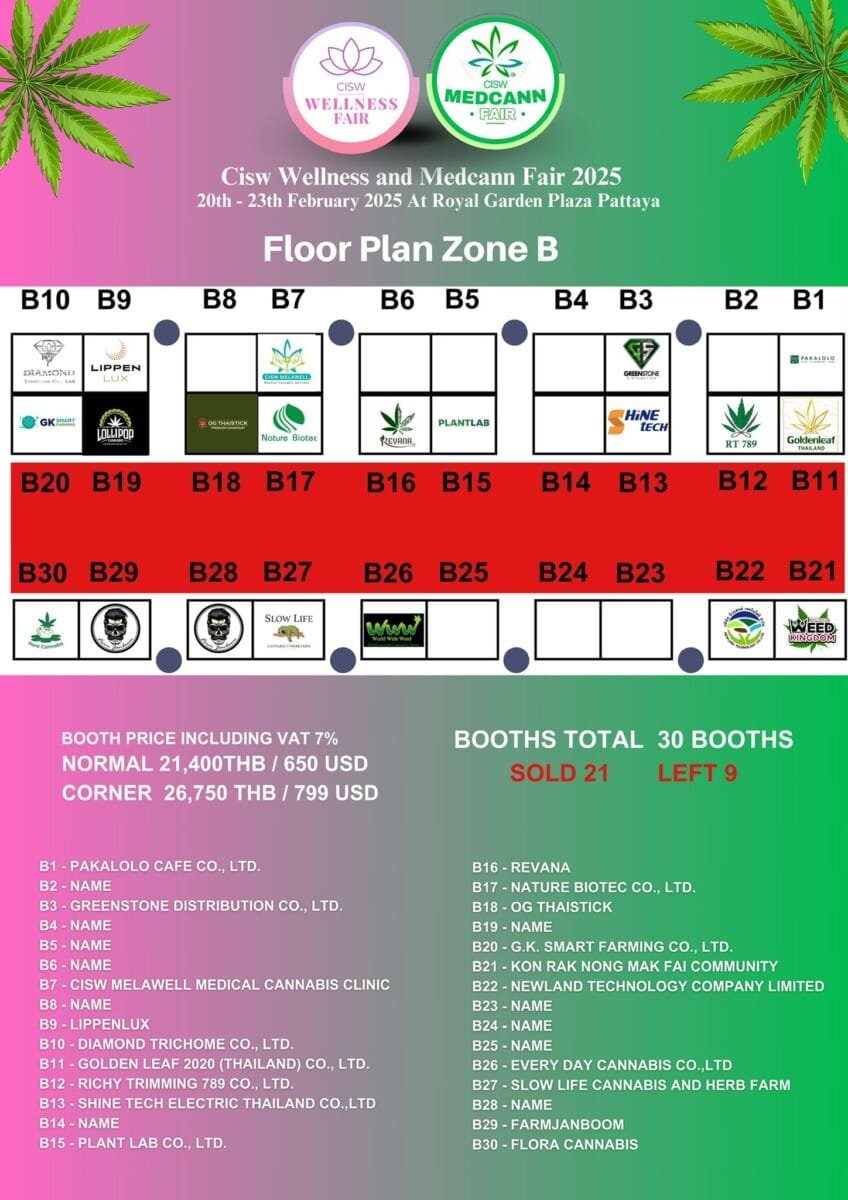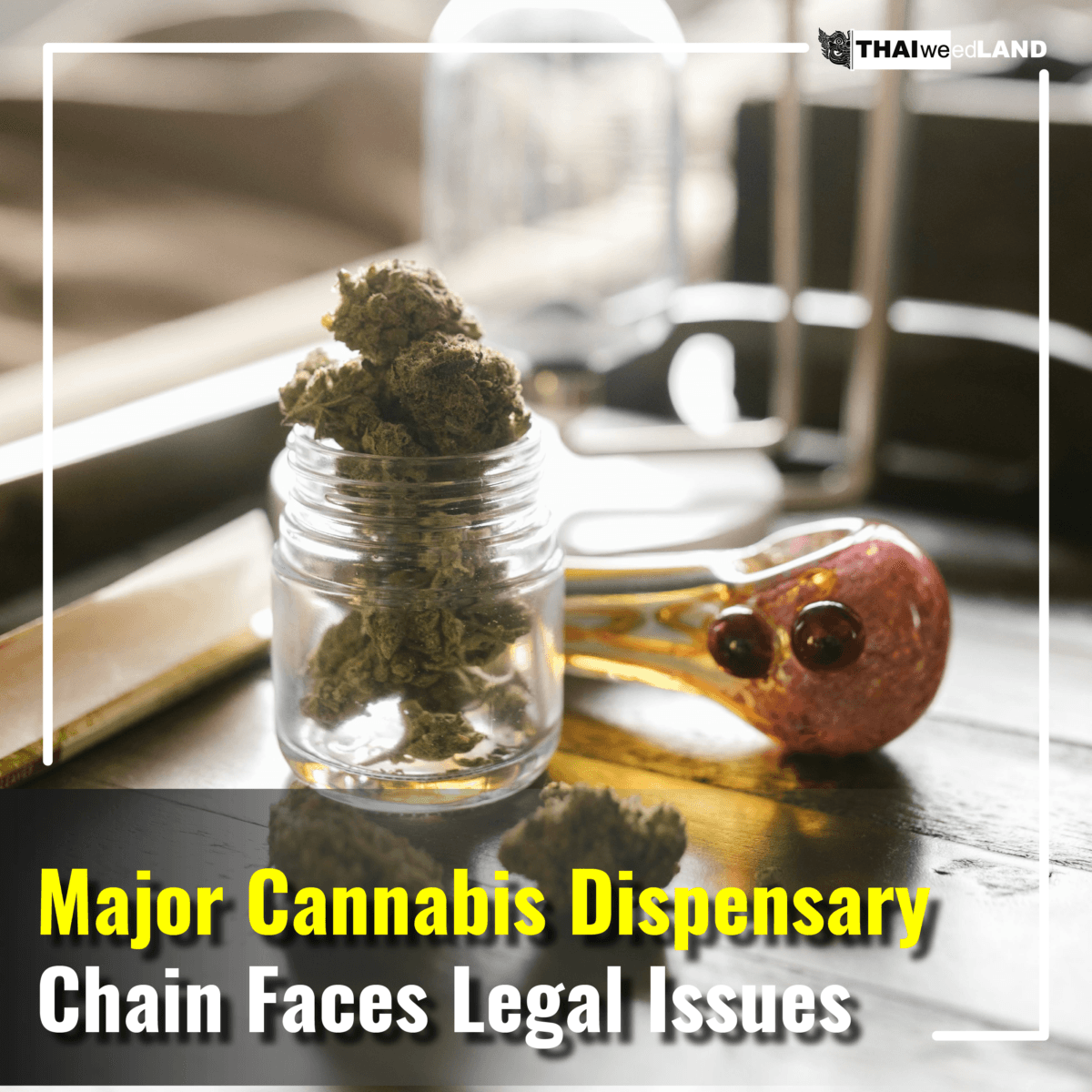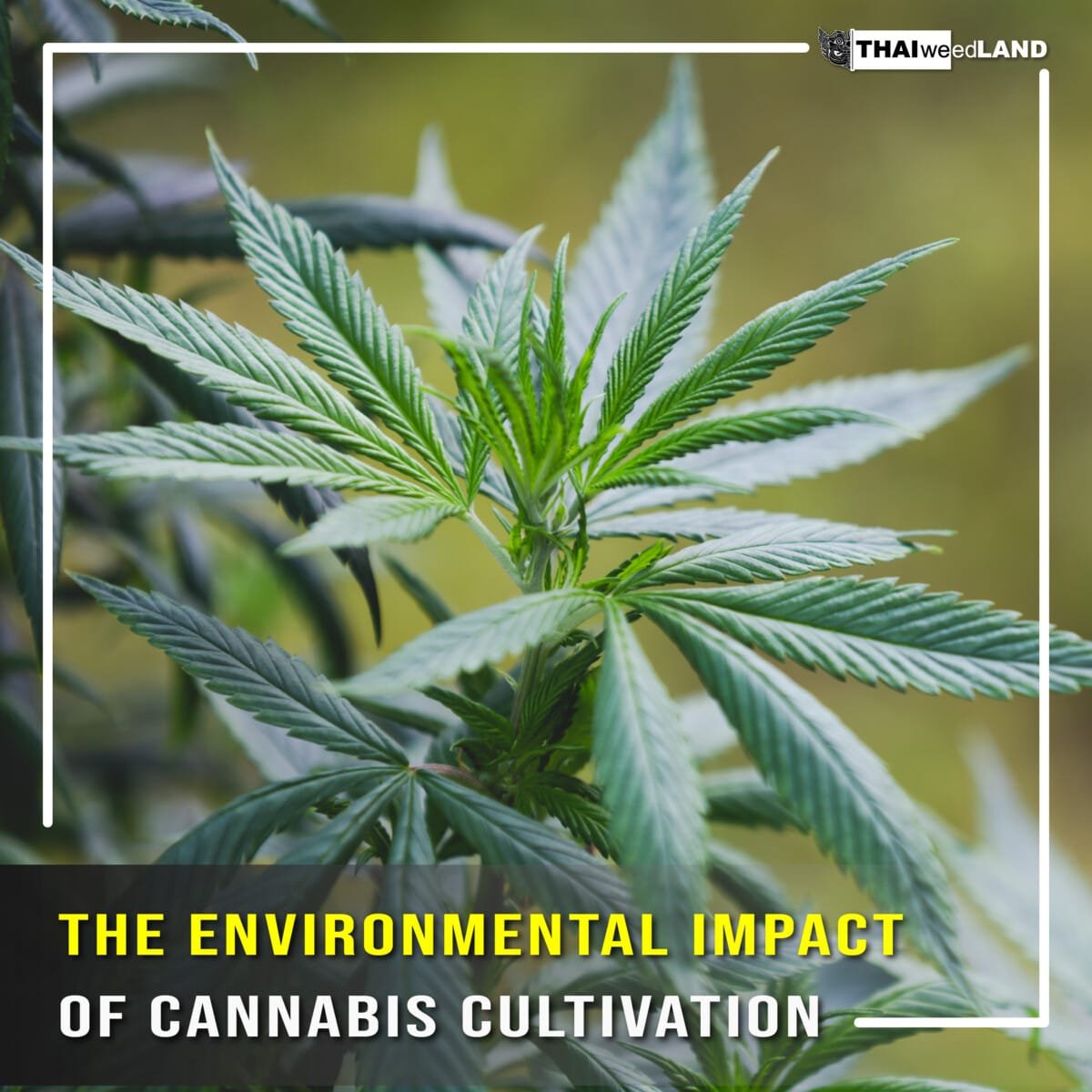Changing the policy once in 2 years is considered fast, but changing it twice in 3 months is considered very fast. However, this is what happened with the “cannabis and hemp policy” in the government of “Settha Thavisin”. From a business perspective, this kind of uncertainty has had a serious impact.
“Unlocking cannabis and hemp from being a drug” for the main reason of “using it for medical purposes and creating added economic value” has been in effect since June 9, 2022, resulting in all parts of cannabis and hemp not being a Category 5 drug, except for extracts with THC exceeding 0.2%, which are still drugs.
However, to prevent its use in a way that has negative effects on health or causes “free cannabis” that causes damage, there must be a law to control it as a “narcotic substance”, similar to cigarettes and alcoholic beverages. However, in late 2022, the “cannabis and hemp bill” was “rejected” by the House of Representatives because it was deemed that “it cannot control recreational use.”
A “vacuum” has emerged without a law to control the use of cannabis and hemp, so the Ministry of Public Health (MoPH) has issued an announcement declaring “cannabis flower buds” a controlled herb. If it is to be used, permission must be requested and it is prohibited to sell to children under 20 years old, pregnant women, breastfeeding women, and students, advertising is prohibited, and sales are prohibited in specified places. There was also an attempt to propose the Cannabis and Hemp Act again, but the parliament was dissolved before it was considered.
Estimated in 2025, the market value is 42 billion.
In 2022, the Economic and Business Forecasting Center of the University of the Thai Chamber of Commerce assessed the market value of the cannabis industry. From the estimated cultivation area as of April 2022, there is a cultivation area of more than 7,500 rai, with a market value of the cannabis and hemp industry from the beginning. To downstream products, totaling more than 28,055 million baht, divided into upstream, worth 9,615 million baht/midstream, worth 14,690 million baht / downstream, worth 3,750 million baht
It is expected that the market value in the 3 years from 2023 to 2025 will grow by 10-15%, with the value in 2023 at 31,753 million baht, in 2024, at 36,525 million baht, and in 2025, at 42,851 million baht, it is expected to generate income for farmers as high as 800,000 baht to 1.2 million baht per rai per year, or an average of 1 million baht per rai per year
Nearly 3,000 cannabis and hemp products
After 2 years of unlocking Results of the license issuance according to the Controlled Herbs Announcement, the overall picture of the country is 14,518 copies, in the Bangkok area 2,924 copies, in the provinces 11,594 copies, separated into 13,970 copies for sale or processing, 515 copies for export, 33 copies for research. Cannabis and hemp products requested permission from the Food and Drug Administration (FDA) for a total of 2,906 items, separated into 2,121 cosmetics, 596 food products, and 189 herbs.
Until May 8, 2024, the Prime Minister ordered the "return of cannabis to narcotics". After 3 months, they prepared to bring the draft announcement of the Ministry of Public Health to return cannabis to narcotics at the meeting of the Narcotics Control Board (ONCB Board) on July 23, 2024, which is the last checkpoint before "cannabis returns to being a narcotic". However, the meeting was postponed along with the revelation that "the Prime Minister ordered to control cannabis using the Act", which did not specify whether the use of the Act to control under "cannabis has the status of being or not being a narcotic", creating even more uncertainty.
Cannabis and hemp business stagnation - investment in vain
The volatility of "government policy" and the uncertainty of the law like this, from the economic perspective, is very damaging. It causes businesses to stagnate, entrepreneurs cannot plan their businesses effectively, and many entrepreneurs have to face losses from their investments.
Many cannabis businesses have to close down, resulting in unemployment and loss of income for the country, lack of confidence among investors, both Thai and foreign, in investing in the cannabis business sector of Thailand, and delays in research and development of innovations related to cannabis and hemp have to be halted.
Examples of businesses affected
Businesses affected, such as small entrepreneurs who have just started a cannabis business, may face losses and have to close down because their investments have been wasted. They have no chance to expand their businesses. Large entrepreneurs who have invested in cannabis production and processing plants may face debt problems and reduced production capacity because there is no market for their products.
Farmers who have turned to growing cannabis to generate additional income may have to go back to growing other cash crops, losing money from their investment in building greenhouses. Private and government sectors that are researching and developing cannabis products may have to halt their research projects due to a lack of funding and legal uncertainty.
Just a clear cannabis policy
The government's cannabis and hemp policy has been pushed forward by the Hemp and Cannabis Industry Association, which has proposed 4 management concepts, including:
- Support the enactment of laws or regulations to enforce and have strict and clear penalties for those who use hemp and cannabis plants, including extracts with THC higher than 0.2% for the wrong purpose, which has contributed to the negative image of hemp and cannabis plants.
- The government must provide clear knowledge to the public about the differences between hemp and cannabis plants, including knowledge about CBD extracts with THC lower than 0.2%, which are not addictive substances and are highly safe.
- The government should support the use of CBD extracts from hemp plants as ingredients in various products, especially medical and health products.
- Specify that products containing CBD extracts can be advertised and sold like general health products.
After 2 years, the "cannabis and hemp policy" has not achieved the goal of unlocking "creating added economic value". On the contrary, “Causing business damage” The market value is estimated to reach 42 billion baht by 2025, not to mention the export of CBD products that will compete for a share of the world market worth more than 600 billion baht if the government still lacks a clear policy.





